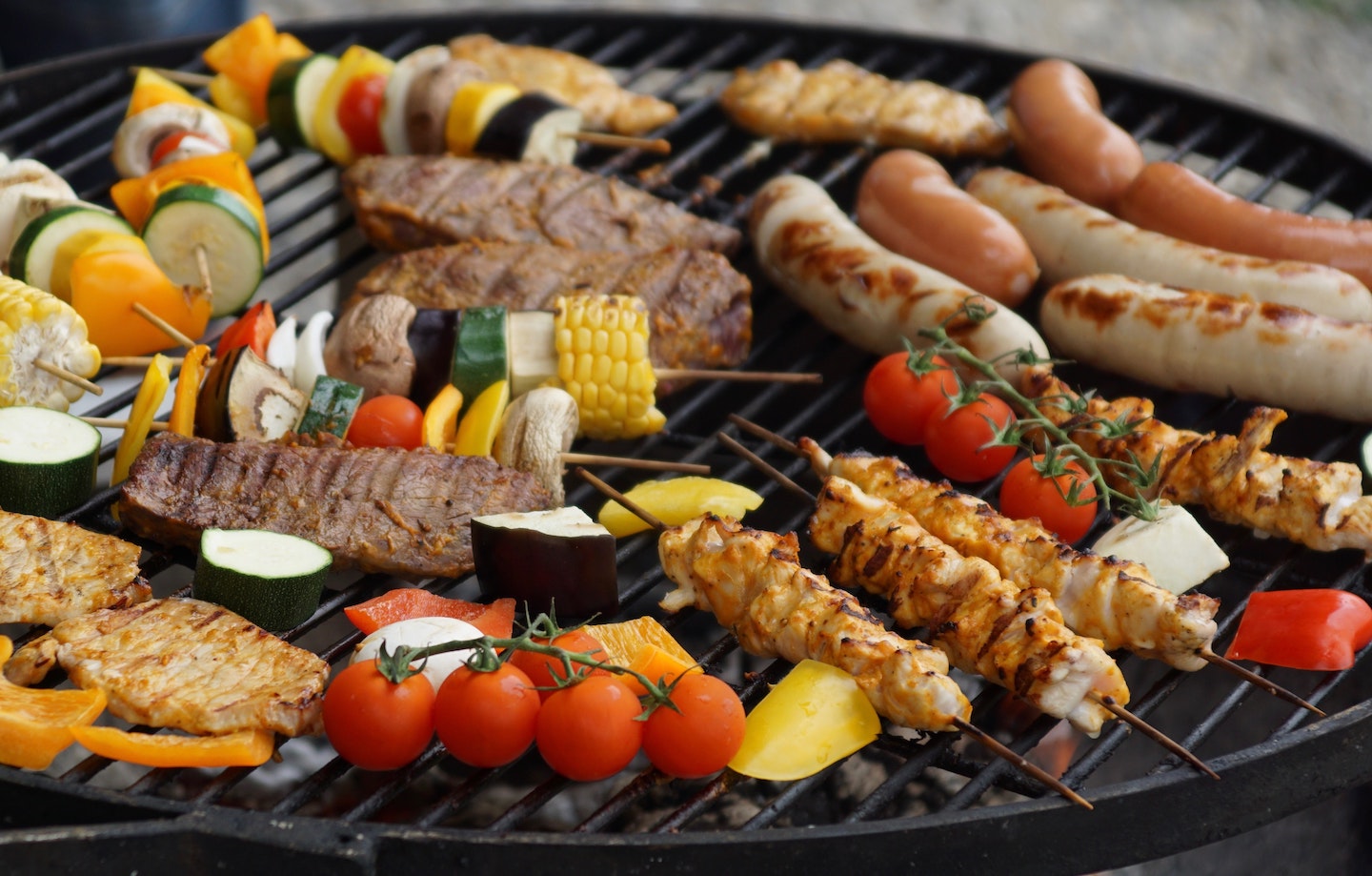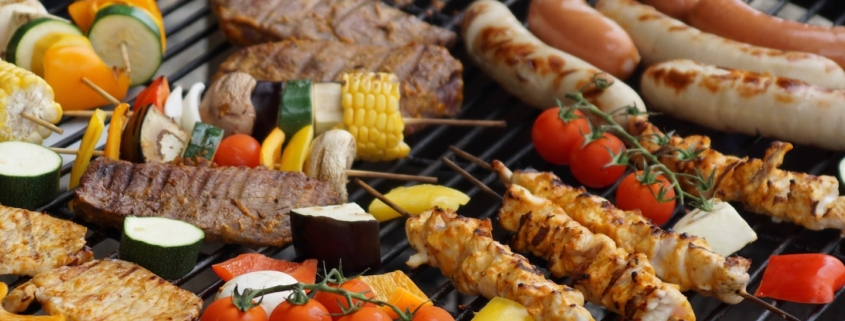Essential Barbecuing Safety Tips for a Sizzling Summer
 The air is heating up and so is the grill. From backyard parties with the family to hosting friends and neighbors, you can’t go wrong with barbecued food and fresh produce!
The air is heating up and so is the grill. From backyard parties with the family to hosting friends and neighbors, you can’t go wrong with barbecued food and fresh produce!
There is nothing better than eating a meal hot off the barbeque during these summer months. However, foodborne illness can put a damper on any festive gathering. When the temperatures are warm and bacteria can grow faster, it’s very important to handle fruits and vegetables safely.
During the summer months, we also tend to eat outdoors more often, causing a greater chance of contamination, especially in sites away from home, where there is minimal access to refrigeration and washing facilities. Learning the proper way to handle fresh produce can help lower your risk of causing foodborne illnesses.
Handling Fresh Produce
Reducing your risk of foodborne illness doesn’t have to be laborious! The following are some tips to reduce the risk of foodborne illness from fresh produce:
- At the store, purchase produce that is not bruised or damaged. If buying fresh-cut produce, be sure it is refrigerated or surrounded by ice.
- At home, chill and refrigerate foods. After purchase, put produce that needs refrigeration away promptly. Fresh produce should be refrigerated within two hours of peeling or cutting. Leftover cut produce should be discarded if left at room temperature for more than two hours.
- Wash hands often. Hands should be washed with hot soapy water before and after handling fresh produce or raw meat, poultry, or seafood.
- Wash all fresh fruits and vegetables with cool tap water immediately before eating. Scrub firm produce, such as melons and cucumbers, with a clean produce brush. Cut away any bruised or damaged areas before eating.
- Wash surfaces often and avoid cross-contamination. Cutting boards, dishes, utensils, and countertops should be washed with hot soapy water and sanitized after coming in contact with fresh produce or raw meat, poultry, or seafood.
- Wash pre-packaged salads before use. Don’t assume that food is ready to eat because it is prepackaged!
- Even if you don’t eat the peel of a fruit or vegetable, such as melons, it is still important to wash them. Bacteria from the outer surface can be transferred to the inside of the fruit or vegetable when you cut into them. Discard the outer leaves of leafy vegetables before washing them.
Barbequing Safety 101
When it comes to barbecuing, you can never be too careful. From food preparation to cooking, there are many opportunities for things to go wrong. Following these tips can help keep your summer fun:
Storage: Place all meats in the refrigerator immediately. Freeze meat and poultry that won’t be used within 1 or 2 days. Freeze other meat within 4 to 5 days.
Thawing: Completely thaw all meats before they go on the grill, to ensure thorough even cooking. Practice safe thawing methods in the refrigerator or in cold running water.
Marinading: Make sure you marinate meats in the refrigerator, not on the counter. Poultry and cubed or stewed meat can be marinated for up to 2 days. Beef, veal, pork, and lamb cuts may be marinated for up to 5 days. If saving marinade for later use, reserve a portion of the marinade before placing raw meat in it to prevent cross-contamination from raw to cooked foods.
Transportation: When carrying food to another location, make sure to keep it cold to minimize any bacterial growth. Use an insulated cooler with ice or ice packs to keep the food at 40 degrees or lower. Pack food straight from the refrigerator into the cooler immediately before leaving home. Pack perishables and non-perishables in separate coolers. Avoid opening the lid of the cooler too often and keep it out of direct sunlight to keep the temperature constant.
Cooking: Never partially grill meat or poultry and finish cooking later. Meat and poultry often brown very fast on the outside and can be an inaccurate indicator of whether it is safe to eat. Use a food thermometer to be sure.
Reheating: When reheating fully cooked meats, grill to 165 degrees F or until steaming hot.
Make sure your summer is as enjoyable as possible by reducing your family’s risk of developing any foodborne illnesses.


Leave a Reply
Want to join the discussion?Feel free to contribute!